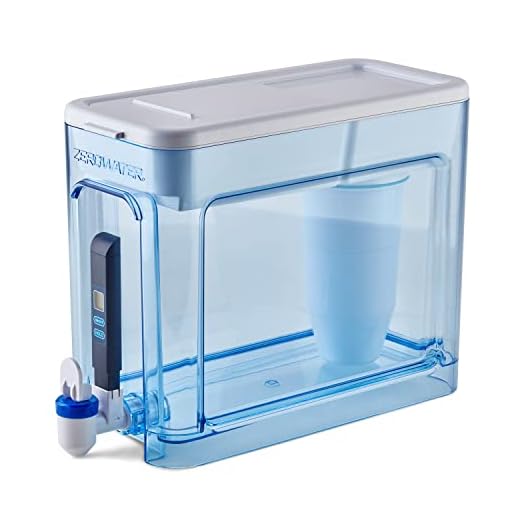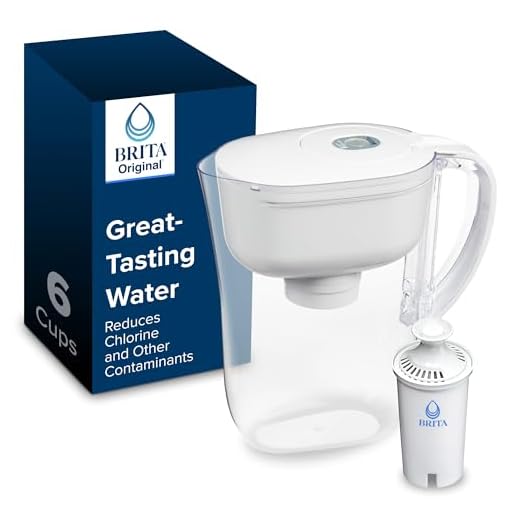




Maintenance Requirements
Regular maintenance is essential to ensure the optimal performance of water filters. Depending on the type of filter system you choose, some models require periodic sanitization or cleaning, while others may need more detailed upkeep. Check the manufacturer’s guidelines for specific instructions on how often to service the filter. Ensuring that the components remain in good condition will enhance both the efficiency and lifespan of the water filtration system.
Monitoring the filter’s performance also falls under maintenance responsibilities. Keep an eye out for changes in water taste, odor, or flow rate, as these can indicate that the filter may be clogged or require replacement. Note any indicators provided by the system—some filters come equipped with indicators that signal when it’s time for a change. Staying proactive about maintenance can help prevent costly repairs and ensure a consistent supply of clean water for your home.
Filter Replacement Schedules
Understanding the frequency with which filters need replacing is crucial for maintaining clean water. Many filters have specific manufacturers’ guidelines recommending replacement every few months, depending on usage and water quality. Regularly checking the condition of the filter can also provide insight; if it appears discolored or clogged, it might need changing sooner than expected.
A well-planned replacement schedule can ensure optimal performance. Keeping track of the filter change dates in a calendar or using reminders on devices can help. Monitoring water taste and clarity can serve as additional indicators that it may be time for a replacement. Regular upkeep not only enhances water quality but also prolongs the longevity of the filtration system itself.
Budgeting for a Water Filter
When considering a water filter, it is crucial to evaluate both the initial costs and the ongoing expenses associated with its use. Entry-level models may come with a lower price tag, but features and performance often improve with more expensive options. It’s important to account for filter replacements, maintenance, and any additional accessories that could enhance effectiveness, such as specialized taps or installation kits.
Long-term savings can often offset the higher upfront investment in a quality water filtration system. By reducing reliance on bottled water, families can enjoy significant savings over time. Additionally, a well-maintained water filter can lead to better health outcomes, potentially lowering medical expenses related to waterborne illnesses. Balancing these factors can help in making a financially sound decision regarding the right water filter for a household.
Initial Costs vs. Long-Term Savings
When considering a water filter system for your home, it’s essential to evaluate both the initial costs and the potential long-term savings. Many high-quality filters may come with a higher upfront price, but they often lead to reduced expenses over time, primarily due to lower bottled water purchases and decreased plumbing repairs caused by sediment buildup. Opting for a system that meets your household needs can ultimately prove to be a financially savvy choice, providing reliable access to clean water without frequent financial strain.
Analyzing your consumption patterns can also help you assess the long-term benefits of investing in a water filtration system. A well-chosen filter can improve health and well-being by providing safer drinking water. This investment not only enhances your quality of life but may also lead to savings on medical bills associated with waterborne illnesses and adverse health effects from contaminants. Understanding these dynamics will enable homeowners to make more informed decisions about their water filter options.
Environmental Impact
Water filters can play a significant role in reducing reliance on bottled water. Each year, millions of plastic bottles end up in landfills and oceans, contributing to environmental degradation. By utilizing a water filter, households can minimize their dependence on single-use plastics while still ensuring access to clean drinking water. This shift not only reduces waste but also fosters a more sustainable lifestyle.
In addition to waste, water filters can help lower the carbon footprint associated with the production and transportation of bottled water. Manufacturing plastic bottles consumes energy and raw materials, while transporting bottled water globally adds further emissions. By filtering tap water at home, consumers can directly contribute to reducing these environmental impacts, leading to a cleaner, healthier planet. Choosing the right water filter can thus align economic benefits with environmental responsibility.
Reducing Plastic Waste and Carbon Footprint
Many households rely on bottled water, which contributes significantly to plastic waste. Every year, millions of tons of plastic bottles end up in landfills and oceans, taking hundreds of years to decompose. Switching to a water filter can significantly reduce reliance on these single-use plastics. Investing in a good-quality filtration system not only minimizes environmental impact but also promotes sustainability by encouraging a more responsible use of resources.
Additionally, water filters can lead to a smaller carbon footprint. The production and transportation of bottled water involve substantial energy use and greenhouse gas emissions. By filtering tap water, households can enjoy fresh, clean water while decreasing their overall contribution to climate change. This approach helps foster a more eco-friendly lifestyle and encourages efforts towards environmental conservation.
FAQS
What factors should I consider when choosing a water filter for my home?
When selecting a water filter, consider factors such as the type of contaminants you want to remove, the filter’s capacity, maintenance requirements, and your budget. It’s also important to evaluate the ease of installation and whether the filter meets any relevant health and safety standards.
How often do I need to replace my water filter?
Filter replacement schedules vary depending on the type of filter and usage. Generally, manufacturers provide guidelines on replacement frequency, which can range from every few months to once a year. Regularly checking the filter’s performance is essential to ensure optimal water quality.
What is the average cost of a home water filter system?
The cost of a home water filter system can vary widely, ranging from $20 for basic pitchers to several hundred dollars for advanced under-sink or whole-house systems. It’s important to factor in both the initial purchase price and any ongoing maintenance costs when budgeting.
Are more expensive water filters always better?
Not necessarily. While more expensive filters may have advanced features or higher capacities, the best choice depends on your specific water quality needs and usage. It’s crucial to read reviews, compare performance, and check certifications to ensure you’re getting the right filter for your situation.
How can using a water filter help reduce my environmental impact?
Using a water filter can significantly reduce plastic waste by decreasing your reliance on bottled water. Additionally, many filters are designed to be more energy-efficient, helping to lower your carbon footprint. By choosing a filter, you contribute to a more sustainable lifestyle while enjoying clean drinking water.
Related Links
How to Evaluate Different Water Filter Brands
Roundup of Best Water Filter Brands for Home Use in 2023
Review of Top-Rated Water Filters for Household Use
10 Factors to Consider When Comparing Home Water Filters

